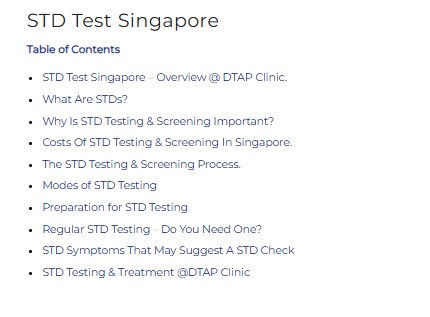STD Testing: A Crucial Step Toward Protecting Your Sexual Health
- payjaman05
- Jan 4
- 4 min read

Sexually transmitted diseases (STDs) are common but often overlooked. Many individuals avoid getting tested due to stigma or uncertainty about what the process involves. However, regular STD testing is essential to maintaining good sexual health, preventing long-term complications, and ensuring peace of mind. This article will guide you through the importance of STD testing, when to get tested, and what to expect during the process.
What Is STD Testing?
STD testing is the process of screening individuals for infections transmitted through sexual contact. These infections can be caused by bacteria, viruses, or parasites, and some may not show symptoms, making testing crucial for early detection. Common STDs include:
Chlamydia
Gonorrhea
Syphilis
HIV
HPV (Human Papillomavirus)
Herpes
Hepatitis B and C
Testing involves taking samples from the body—either blood, urine, or swabs from affected areas—and analyzing them for the presence of infections.
Why Should You Get Tested for STDs?
There are several key reasons why getting tested is important:
Asymptomatic Infections: Many STDs do not show symptoms right away, so you may be infected without knowing it. Testing helps detect these infections early before they cause long-term health issues.
Preventing Complications: Untreated STDs can lead to serious health complications, including infertility, organ damage, and an increased risk of HIV transmission.
Protecting Your Partners: Testing ensures you know your status, so you can protect your sexual partners and reduce the risk of spreading infections.
Peace of Mind: Testing provides reassurance about your sexual health, allowing you to take necessary actions if an infection is detected.
Who Should Get Tested?
Anyone Who Is Sexually Active: Regardless of whether or not you have symptoms, routine testing is essential for everyone who is sexually active.
Individuals with New or Multiple Partners: If you are starting a new sexual relationship or have multiple partners, testing is important to ensure the health of you and your partners.
Pregnant Women: STD testing during pregnancy helps prevent complications such as passing the infection to the baby.
Those with Symptoms: If you notice unusual symptoms, such as pain during urination, genital sores, or abnormal discharge, you should get tested right away.
People at Higher Risk: Individuals who engage in unprotected sex, use intravenous drugs, or have HIV-positive partners should be tested regularly.
What Types of Tests Are Available?
STD testing can be done in a variety of ways depending on the infection being tested for:
Infection | Test Method |
Chlamydia | Urine test or swab |
Gonorrhea | Urine test or swab |
Syphilis | Blood test |
HIV | Blood test or oral swab |
Herpes | Blood test or lesion swab |
HPV | Pap smear or HPV DNA test |
Hepatitis B and C | Blood test |
Some tests provide results on the same day, while others may take a few days to process. Your healthcare provider will guide you on which tests are best based on your symptoms or sexual history.
When Should You Get Tested?
Annually or After High-Risk Exposure: If you're sexually active, get tested at least once a year. If you have a new partner or engage in high-risk activities, consider testing more frequently.
When Symptoms Appear: If you experience symptoms like sores, pain, or unusual discharge, testing should be done immediately.
After Unprotected Sex: If you've had unprotected sex, especially with a new or multiple partners, it’s a good idea to get tested.
Where Can You Get Tested?
There are multiple places where you can get tested for STDs:
Primary Care Providers: Your general doctor can offer testing and discuss your sexual health.
Specialized STD Clinics: Many clinics specialize in sexual health and offer confidential, affordable testing.
Planned Parenthood or Family Planning Centers: These centers often provide STD testing along with counseling and resources.
At-Home Test Kits: For added privacy, some services offer at-home STD test kits where you can collect samples and send them to a lab for analysis.
What to Expect During the Test?
Getting tested for STDs is typically a straightforward and quick process:
Consultation: A healthcare professional will ask about your sexual history and any symptoms you may be experiencing.
Sample Collection: Depending on the STD being tested for, you may need to provide a urine sample, blood sample, or a swab from your genital area.
Results and Treatment: Results are typically available in a few days, and if you're diagnosed with an infection, your healthcare provider will recommend the best course of treatment.
Breaking the Stigma: Testing Is for Everyone
There’s often a stigma surrounding STD testing, but it’s important to remember that testing is a normal and responsible part of sexual health care. Whether you're in a monogamous relationship or not, testing is a smart, proactive measure for protecting yourself and your partners. The earlier an infection is detected, the easier it is to treat and manage.
Conclusion
STD testing is a simple, essential, and responsible way to maintain good sexual health. It empowers you with knowledge, allows for timely treatment, and prevents the spread of infections to others. Whether you’re symptomatic or not, regular testing is key to your health and wellbeing. Take charge of your sexual health today—book an STD test and protect yourself and those you care about.



Comments